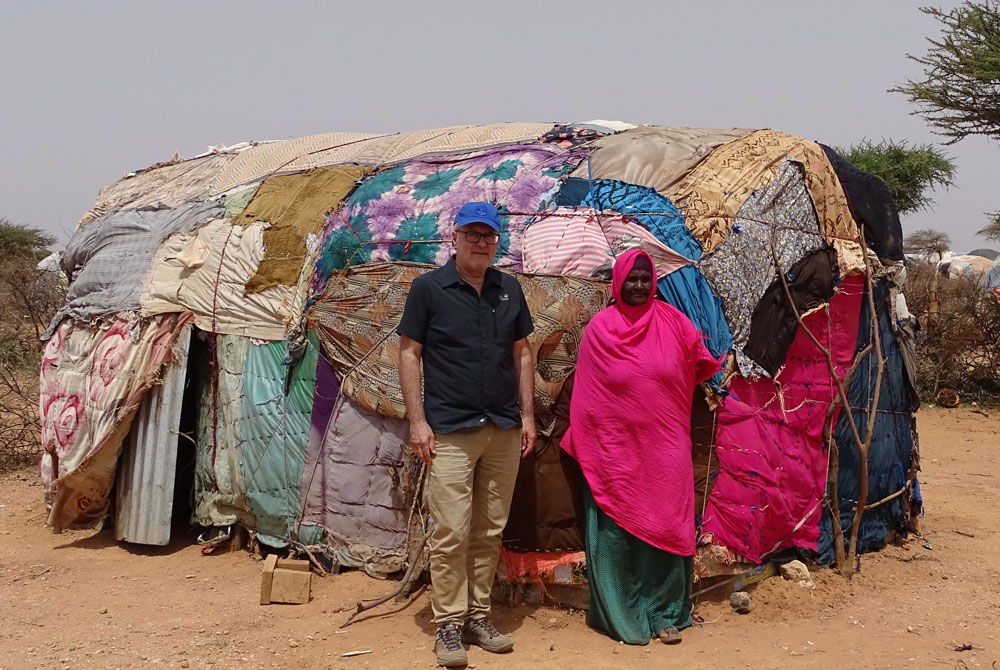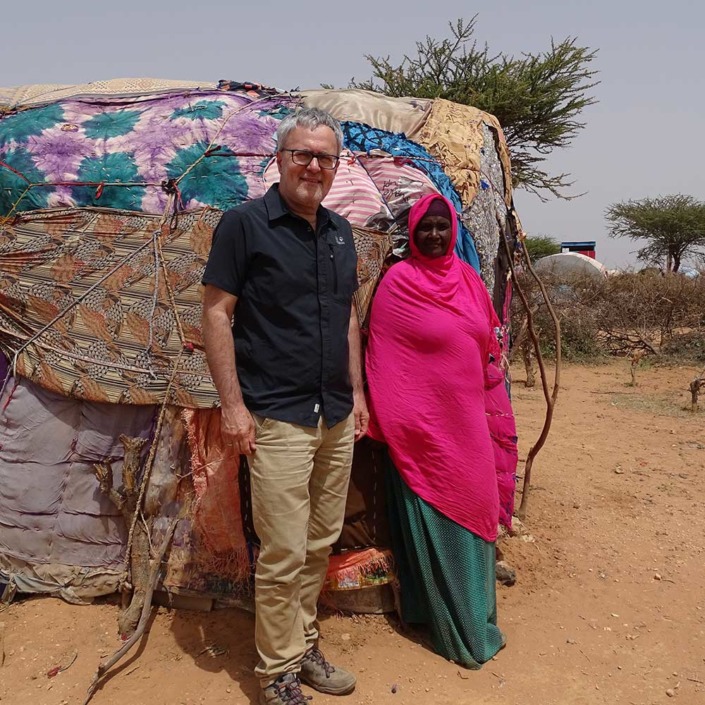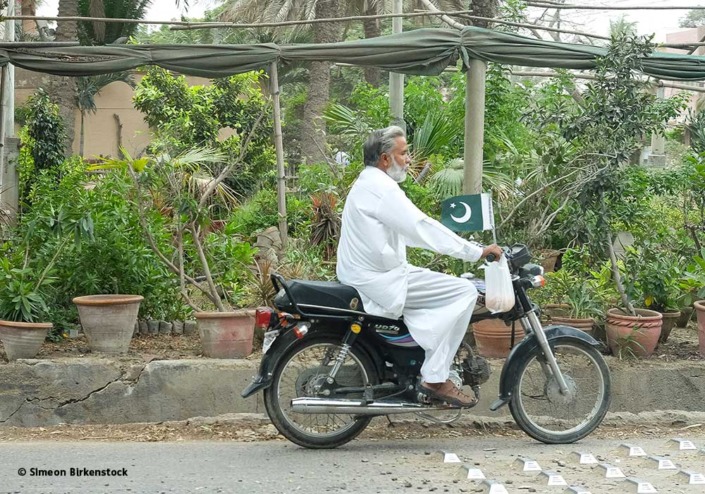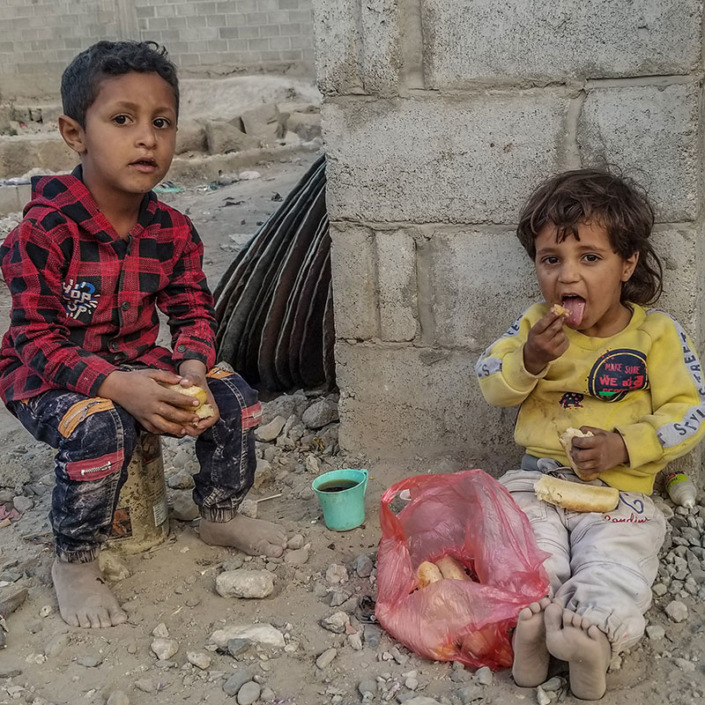A journey to one of the poorest countries in the world
For the past week, I have been traveling in the Horn of Africa. Berbera, the capital, is a large village with few paved roads. It is a bumpy ride from the small airport to the hotel through a collection of homes, shacks, and markets. Loud honking of cars and the call of the muezzin accompany us. The next morning we start early. We drive about two hours to our project villages, where we will now spend two days on the road. Past dried–up rivers, dusty villages, and endless plains we head towards the border of Ethiopia.
Our first stop is a settlement of people on the run, officially called internally displaced people. What does that mean? We meet a hut settlement with about 400 families who have lost everything. No child goes to school. Health care is not available. The women should spend hours looking for water.
Should because Tearfund and other NGOs are developing an agricultural project here. This project includes small model gardens for the respective families, a water reservoir for rainwater, and a greenhouse where a respectable harvest can be achieved in a short time. We are greeted cheerfully and with gratitude.
“How good that you are here. This gives us hope, we can already provide for ourselves, things are looking up”.
We see how little that is. Yet the help seems to arrive.
What does it take for people to survive in the long term?
Water shortage is a major problem in Somaliland
We continue to a Tearfund flour mill. A self-confident woman explains the principle of the mill to us. Everyone can participate, a small cooperative has been established, and now they have set aside some of the proceeds and want to buy a second mill. Things are moving forward. The cooperative makes it possible for the women to have a small business, for their children to go to school, and thus to have a future.
My admiration is for the women in general: even if at first glance you think they are completely oppressed, you realize that they have retained a lot of autonomy within the limits given to them by tradition. They sell the goods, they stand with the men in the fields, they take care of the children. Women in Africa are the engines of development!
Hope for the people of Somaliland
On the long journeys, we discuss further ways of help. Slowly a new project develops. Drinking water for a pilot project in one of our larger villages. With a proven drinking water system we could supply several thousand people with clean drinking water. What they drink so far is collected rainwater.
Better than nothing, but not healthy. Brown, stale, a source of disease. At the end of our days, we have a new goal: drinking water for Salahley – a water station amidst drought. Hope and a future for people on the edge of existence. If this works, we’ll expand it to other areas. Let’s go! Let’s get to work.









 Tearfund Germany
Tearfund Germany Tearfund Germany
Tearfund Germany